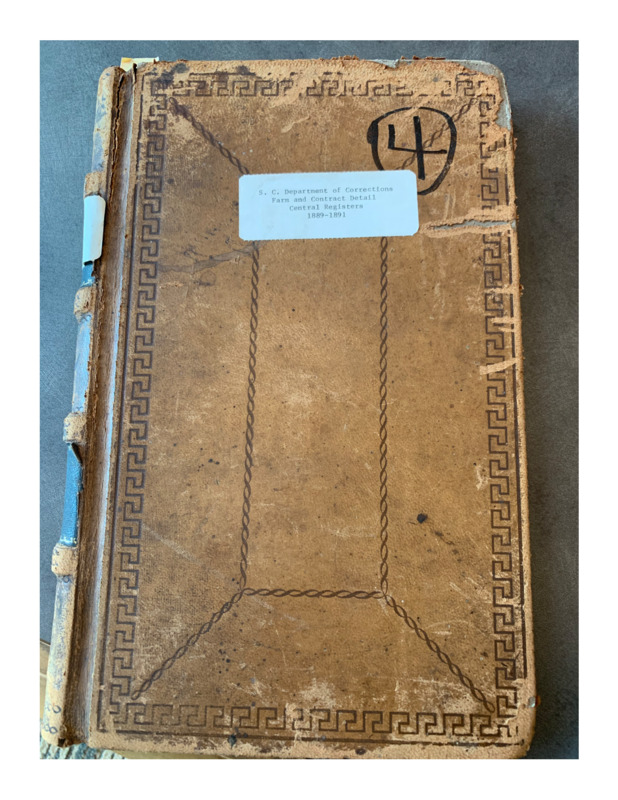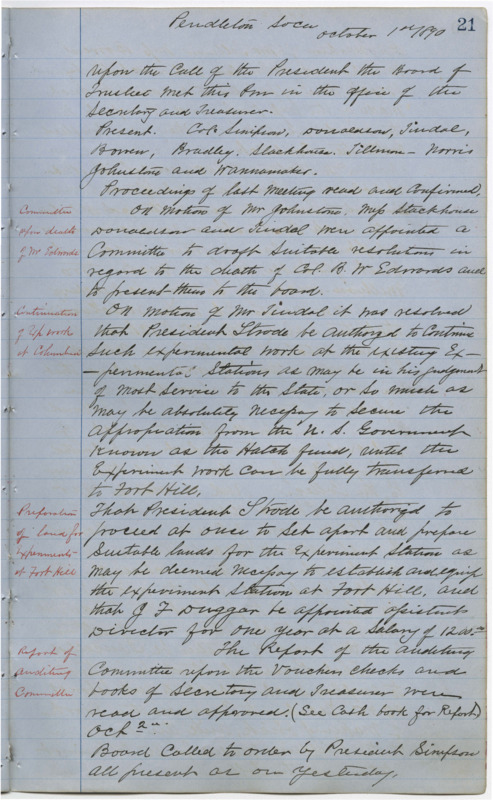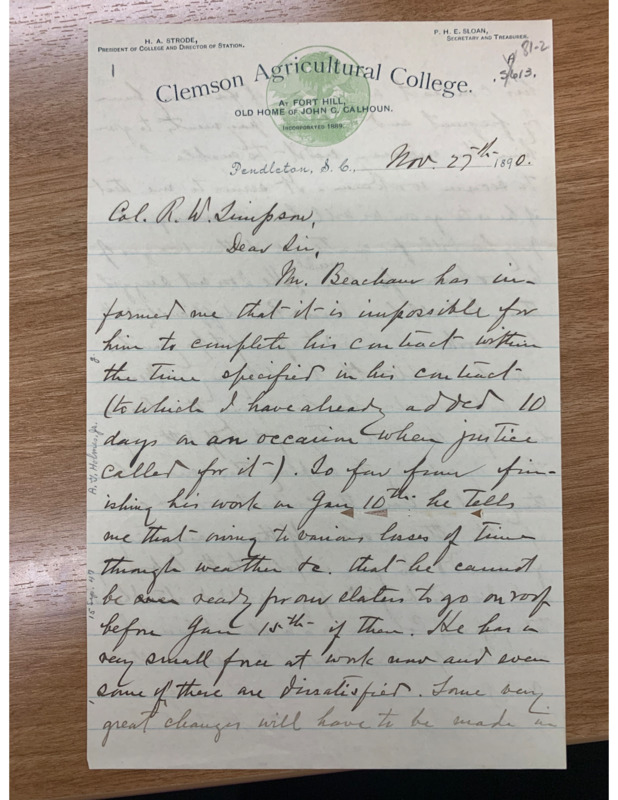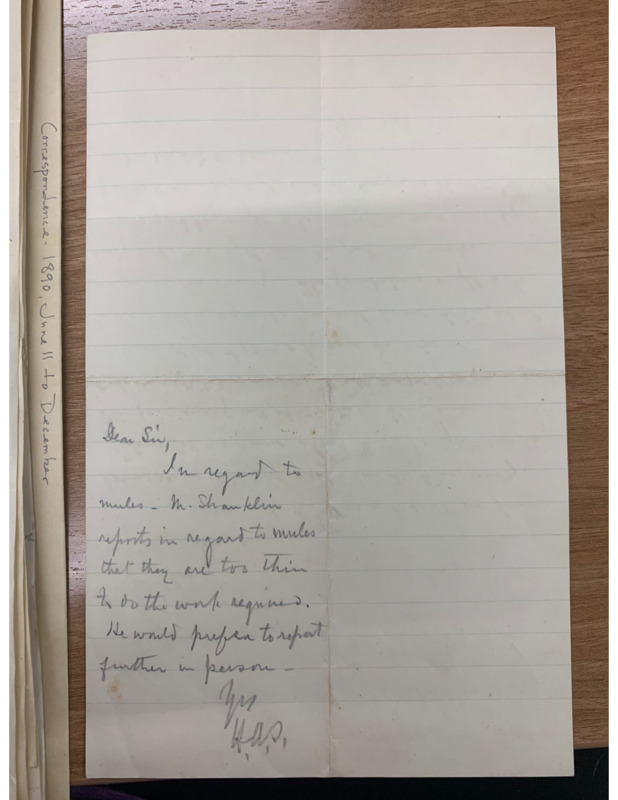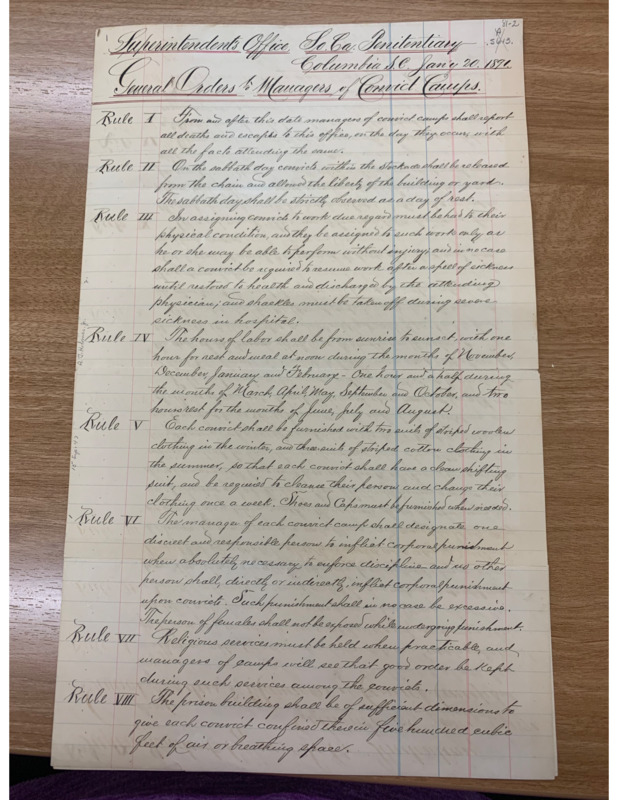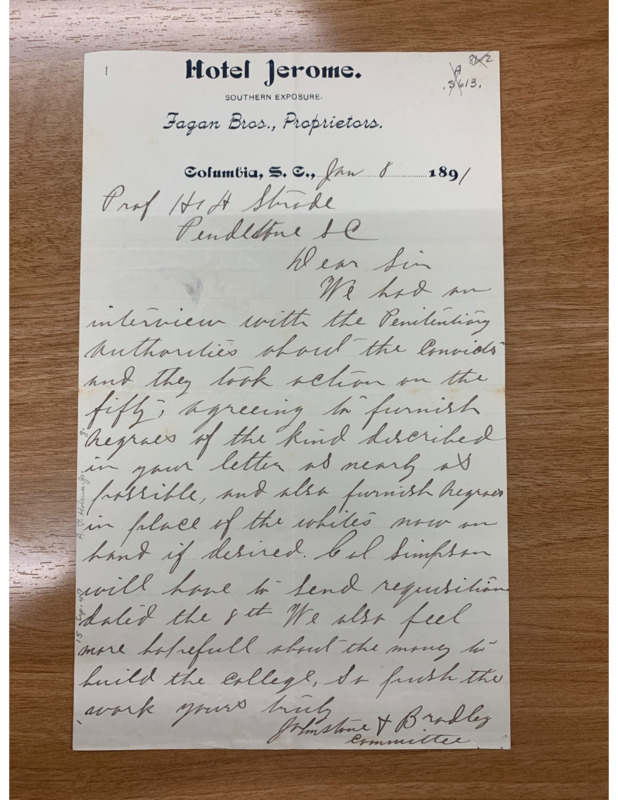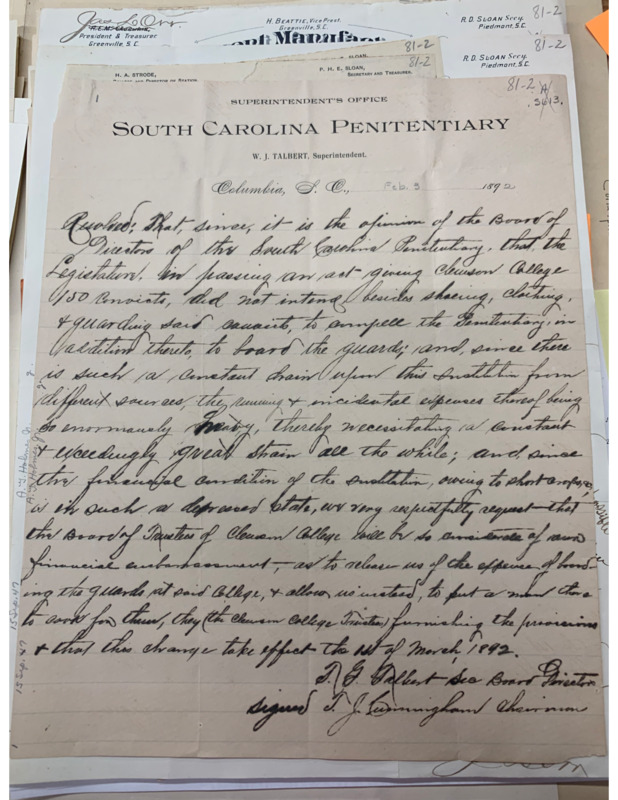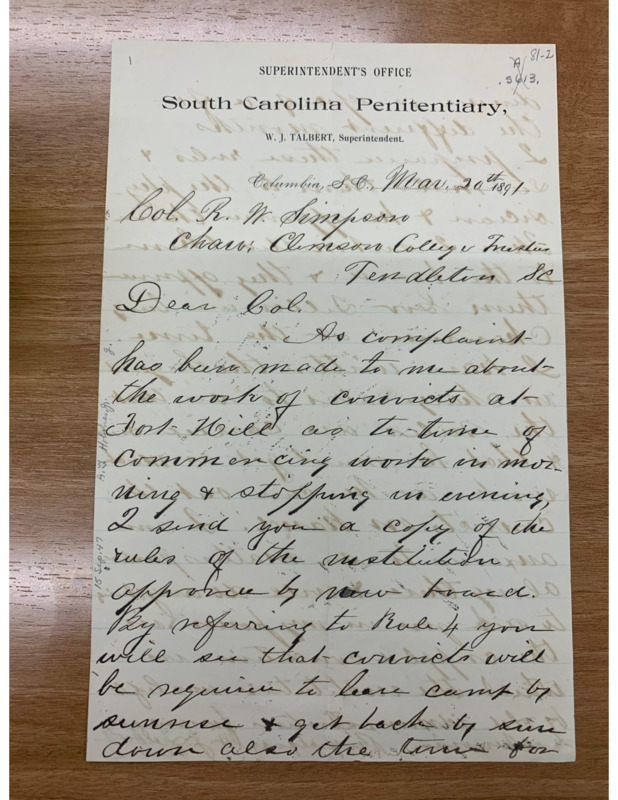-Part 1-
Convict Labor to College
Over 250 names are documented on the Farm and contract detail to Clemson College. Recorded from 1889 to 1891 by the South Carolina department of corrections, this list contains names of prisoners working outside the South Carolina state Penitentiary at Clemson. Supplementary information, such as date admitted, prisoner name, and remarks (generally date discharged or if escaped), is included. The first column is prisoner number. Once convicted of a crime, convicts lost their identity–effectively becoming property of the state–to work tirelessly for the rest of their days.
In 1890, the Clemson Board of Trustees were in need of skilled laborers to build the college. The initial brick making company Clemson employed proved unworthy, having not "…complied with the contract."[1] The following motion was then made, "That President Strode be instructed to employ such assistants and laborers &C&C necessary to carry on the work of making brick, and the erection of the building needed for the experiment station and the college."[2] After discussion about the next steps to take, Clemson board requested "able-bodied convicts…for preparation of the grounds and materials" and for the 'work connected with the erection of the buildings."[3] Preparations for the convicts had to be made. Such arrangements included the creation of a committee. As provided in the Clemson Trustees Minutes, appropriations connected with Farm and convicts were to be sent to the Farm Committee.[4]
Convict Labor at Clemson College not only followed stipulations set by the Board of Trustees, but those put in place by the South Carolina Penitentiary. Found in the Richard Wright Simpson papers, the superintendent of the state penitentiary sent general orders to managers of convict camps. Rule one states that “…managers of convict camps shall report all deaths and escapes to this office, on the day they occur with all the fact attending the same.”[5] Rule three additionally states that in assigning convicts to work, due regard must be had to their physical condition, and they be assigned to work only as he or she is able to perform.[6] One last rule of note states the following, “At each camp there must be a suitable building for the sick, properly warmed and furnished, and the sick must be placed in this building at once and kept there until ready for work. Sick convicts shall be furnished with such diet as the physician may deem necessary.”[7]
The Clemson Board of Trustees efficiently contacted the South Carolina Penitentiary in order to gain access to the convicts needed to complete the college. Though a committee was formed to manage convicts and their needs, several individuals took the lead in the maintenance and assembly of the prisoners. These include Richard Wright Simpson, J.E. Wannamaker, W.A. Perry, George Gilland, Mr. Lewis, and Mr. McCrackin.
[1] Clemson University Board of Trustees, “Committee to Examine Brick of Poole” in Clemson Trustees Minutes, 1890 October 1 (1890). Minutes. 448. https://tigerprints.clemson.edu/trustees_minutes/448.
[2] Clemson University Board of Trustees, “Authority for Pres. Strode, make brick and erect buildings” in Clemson Trustees Minutes, 1890 October 1 (1890). Minutes. 448. https://tigerprints.clemson.edu/trustees_minutes/448.
[3] Jerome V. Reel, “Building the School: 1889-1893,” in The High Seminary, Volume 1: A History of Clemson Agricultural College of South Carolina, 1889-1964 (Clemson: Clemson University Press, 2011), 73.
[4] Clemson Board of Trustees, “Appropriations request for, to be referred to the committee,” in Clemson Trustees Minutes, 1908 August 31-September 1 (1908), Minutes, 375, https://tigerprints.clemson.edu/trustees_minutes/375.
[5] “Rules Governing Convict Camps”, Folder 15, Box 1, Richard W. Simpson Papers, Mss. 96, Special Collections Library, Clemson University Libraries, Clemson, S.C.
[6] Rules Governing Convict Camps”, Folder 15, Box 1, Richard W. Simpson Papers, Mss. 96, Special Collections Library, Clemson University Libraries, Clemson, S.C.
[7] Rules Governing Convict Camps”, Folder 15, Box 1, Richard W. Simpson Papers, Mss. 96, Special Collections Library, Clemson University Libraries, Clemson, S.C.
